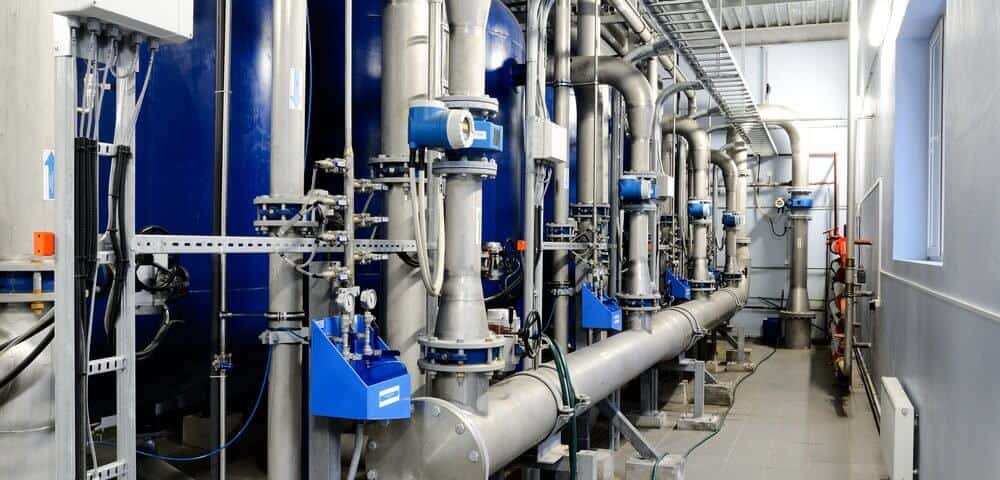Commercial boilers are like the silent heroes of our businesses, always there in the background making sure we’re warm and comfortable. Think about your favorite restaurant, that cozy hotel, or the factory down the road – they all probably depend on one. But just like every hero, these boilers need a little TLC. That’s where routine check-ups come in.
Why Should You Care About Your Boiler?
Before we jump into inspections, let’s take a moment to appreciate what your boiler does for you:
Heating: In the colder months, your boiler is your best friend, ensuring your workspace remains warm and comfortable for employees and customers.
Hot Water: Whether it’s for your kitchen, bathrooms, or industrial processes, your boiler is responsible for producing hot water on demand.
Efficiency: A well-maintained boiler operates efficiently, which translates into lower energy bills and reduced environmental impact.
Safety: Ensuring your boiler is in top-notch condition is critical for the safety of everyone in your establishment. A malfunctioning boiler can lead to hazardous situations, so a commercial boiler repair is a must.
With these factors in mind, let’s explore why regular boiler inspections are a must.
The Importance of Regular Inspections
Safety First: Your boiler operates under high pressure and temperatures. Over time, wear and tear can cause it to develop issues that compromise its safety.
Regular inspections catch potential hazards early, preventing accidents and ensuring the safety of your employees and property.
Energy Efficiency: A well-maintained boiler operates at peak efficiency. On the other hand, neglected boilers lose efficiency, leading to higher energy bills.
Routine inspections identify and address inefficiencies, saving you money in the long run.
Prolonged Lifespan: Just like any machinery, your boiler has a limited lifespan. Regular inspections and maintenance can extend its life, delaying the need for costly replacements.
How Often Should You Inspect Your Boiler?
Now that you understand the importance of boiler inspections, you might wonder how often you should schedule them. The frequency of inspections depends on several factors:
Age of the Boiler: Older boilers may need more frequent inspections, as they are more prone to wear and tear.
Type of Fuel:
The type of fuel your boiler uses can impact its maintenance needs. For example, oil-fired boilers typically require more frequent inspections than gas-fired ones.
Usage:
Boilers that run constantly or are subjected to heavy loads may need more frequent inspections.
In general, it’s a good idea to schedule annual inspections for your commercial boiler. However, always consult with a qualified technician who can assess your specific boiler’s needs.
What Happens During a Boiler Inspection?
Wondering what goes on during a boiler inspection? It’s not as complex as it might sound. Here’s a simplified breakdown:
Visual Inspection: The technician starts by visually examining the boiler, looking for any obvious signs of damage or wear.
Functional Tests: Various components are tested to ensure they are working correctly. This includes safety controls, valves, and ignition systems.
Cleaning: Over time, boilers can accumulate soot, rust, and other debris that hampers their efficiency. Cleaning is a crucial part of the inspection process.
Pressure and Temperature Checks: The technician measures the pressure and temperature inside the boiler to ensure they are within safe and operational limits.
Emissions Testing: For environmental compliance, emissions are tested to ensure they meet regulatory standards.
Recommendations: After the inspection, the technician will provide you with a report detailing the condition of your boiler and any recommended repairs or maintenance.
Common Boiler Problems Uncovered During Inspections
Boiler inspections are like health check-ups for your heating system. They can uncover various issues that, if left unattended, could lead to costly breakdowns or safety hazards. Here are some common problems inspectors might find:
Corrosion: Over time, corrosion can weaken the boiler’s structure, potentially leading to leaks and safety concerns.
Scale Buildup: Mineral deposits can accumulate inside the boiler, reducing its efficiency and potentially causing damage.
Worn Components: Parts like gaskets, valves, and burners can wear out, impacting the boiler’s performance.
Safety Concerns: Inspections often uncover safety issues, such as malfunctioning safety valves or pressure relief devices.
Inefficiencies: Inspectors may identify areas where the boiler could operate more efficiently, leading to energy savings.
Benefits of Regular Boiler Inspections
Still not convinced about the importance of regular boiler inspections? Here are some compelling benefits:
Peace of Mind: Knowing that your boiler is in good working condition gives you peace of mind. You won’t have to worry about sudden breakdowns or safety hazards.
Cost Savings: Catching and addressing issues early through inspections can save you money on expensive repairs or replacements.
Efficiency and Sustainability: Well-maintained boilers operate efficiently, reducing energy consumption and your carbon footprint.
Compliance: Staying compliant with local regulations ensures you avoid legal hassles and fines.
Extended Lifespan: Regular inspections can extend the lifespan of your boiler, delaying the need for a costly replacement.
Conclusion
So, don’t forget to show your boiler some love and schedule those annual check-ups. Your boiler will thank you, and so will your bottom line.
